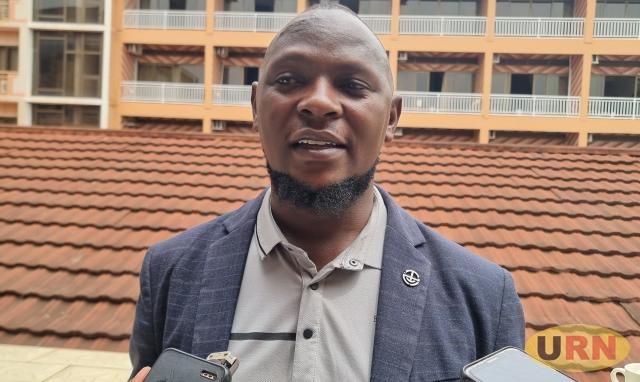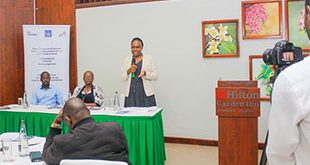
Mukono, Uganda | THE INDEPENDENT | Uganda small-scale miners have asked the government to allocate funds towards discovering more affordable and safer alternatives for extracting gold.
Despite the ban on mercury use, some miners have resorted to smuggling the toxic substance due to the lack of viable alternatives within their means, putting their health and the environment at risk.
The Mining and Minerals Act 2022, emphasized environmental protection, improved health and safety at mining sites, and the elimination of hazardous chemicals such as mercury.
However, the miners argue that the act has yet to provide practical solutions and funding for the development of alternative methods.
Speaking at the Annual Great Lakes Mining and Energy Transition Mkutano, the miners argued that some miners hide mercury under their tongues and in body garments to evade inspection, highlighting the urgency of finding effective alternatives.
Emmanuel Kibirige, the General Secretary of Mubende United Minors Assembly based in Kasanda, expressed the frustration of local miners, stating that every government in the Great Lakes talks about alternative methods for artisanal miners but has not taken steps to establish any.
Kibirige expressed concern about the dire situation faced by small-scale miners, who, due to financial constraints, are forced to use mercury without proper protective gear, leading to severe health consequences.
Mercury is a highly toxic substance that poses significant health risks to miners and those in direct contact with it, especially when vaporized. The contamination extends to soil, water, air, and mining equipment, contributing to long-term environmental degradation.
The health issues associated with mercury exposure include numbness in hands and feet, respiratory problems, kidney damage, and damage to the nervous system.
Kibirige added that the financial barrier faced by small-scale miners in adopting available leaching processes can cost up to 50 million shillings.
“The available leaching methods require about 50 million which the small-scale miners can’t afford because they are poor. The only alternative is mercury they apply without protective gears, it evaporates in them and develops diseases such as numbness in hands and feet, lungs, kidney, and nervous system.” Kibirige says.
Joventa Tugumisirize, the Project Officer for Gender Uganda at Solidaridad East and Central Africa, also stressed the significant health concerns associated with mercury usage in gold mining.
Tugumisirize points out that mercury is highly toxic and harmful, posing a serious threat to human health, including fertility and pregnancy outcomes.
Research cited by Tugumisirize indicates that mercury exposure can lead to impairments in reproductive function, cellular deformation of Leydig cells and seminiferous tubules, testicular degeneration, and abnormal menstrual cycles.
She highlighted studies that have linked occupational mercury exposure to spontaneous abortion and fertility complications, underscoring the urgency of finding safer alternatives for gold separation.
The artisanal gold mining sector in Uganda contributes to the release of more than 15 tonnes of mercury annually.
John Bosco Bukya, the Chairman of the Uganda Artisanal Miners Association, acknowledges the government’s efforts to invest in research for cheap and affordable alternative methods for small-scale miners.
However, he expressed concern about the slow progress of the initiative, citing the financial constraints that drive miners to use mercury.
Bukya explains that the miners usually resort to mercury not by choice but due to the prohibitive costs of available alternatives.
He revealed a collaboration between the Government and Busitema University for innovative alternatives, but funding challenges have hindered the process.
Loyola Karobwa, the Legal Officer at the Ministry of Energy and Mineral Development, said that the government is actively working to establish alternative methods aligned with policy and regulatory frameworks.
Despite the commitment, the process faces challenges, with funding delays affecting the implementation of these alternatives.
Don Bwesigye Binyina, the Executive Director of the Africa Center for Energy and Mineral Policy, highlights the need to broaden discussions beyond Uganda’s borders.
He noted that the global shift towards greener technologies increases the demand for mineral resources, making Africa a target for raw mineral supplies. He added that environmental concerns associated with artisanal mining, citing the lack of financial resources and equipment for environmentally sensitive practices.
According to Binyina, as the rising demand is likely to be fulfilled by artisanal miners, the extraction of resources is expected to result in a significant environmental impact.
“This is because artisanal miners face challenges in accessing the financial resources and equipment needed for environmentally and ecologically sensitive mining practices, and they are limited in their capacity for substantial value addition,” he said.
********
URN
 The Independent Uganda: You get the Truth we Pay the Price
The Independent Uganda: You get the Truth we Pay the Price



